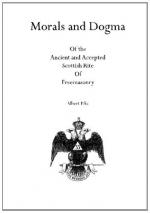|
This section contains 1,040 words (approx. 4 pages at 300 words per page) |

|
The Greek word of which "dogma" is a transliteration means "that which seems good." It was applied by Greek authors to the decrees of public authorities and to the tenets of various philosophical schools. In English the word can be used for any fixed and firmly held belief on any subject, but it usually suggests that the belief is a condition, or at least a sign, of belonging to either a secular or (more frequently) a religious group. The word can also imply that the belief rests on a special—often divine—authority; that any member of the group who attenuates or changes the belief is thereby a "heretic"; and that heresy is a moral, and perhaps also legal, offense that merits the strongest condemnation (and perhaps also punishment).
The clearest example of religious dogma in ancient philosophy comes from Plato. In the Republic (376Eff.) he lays down...
|
This section contains 1,040 words (approx. 4 pages at 300 words per page) |

|


